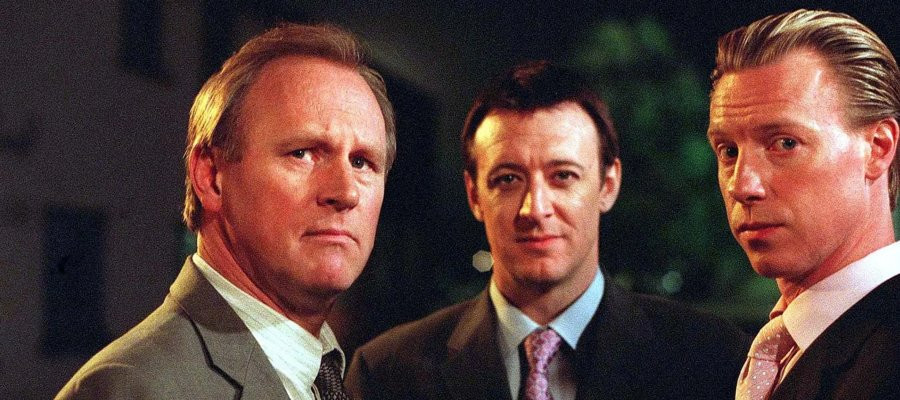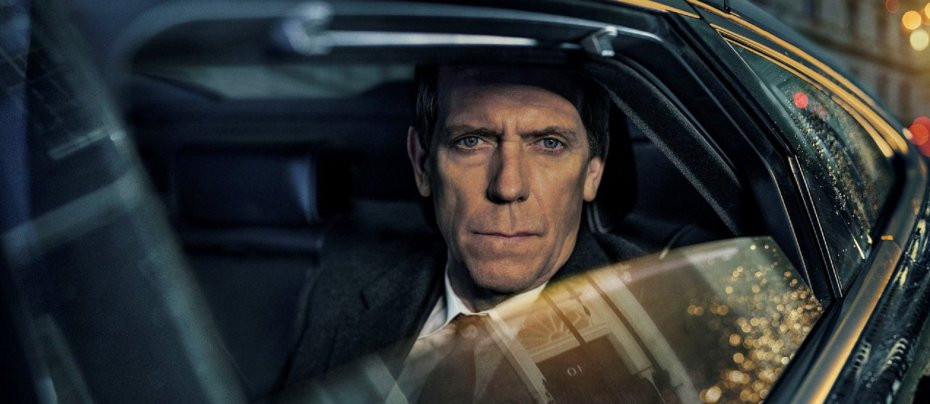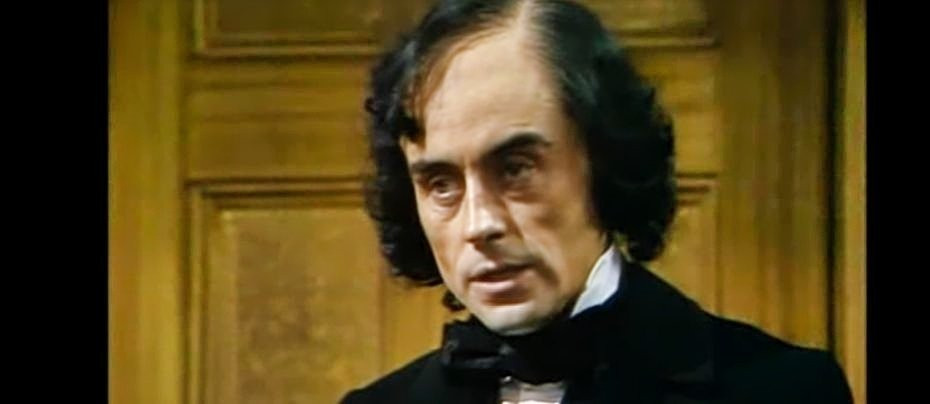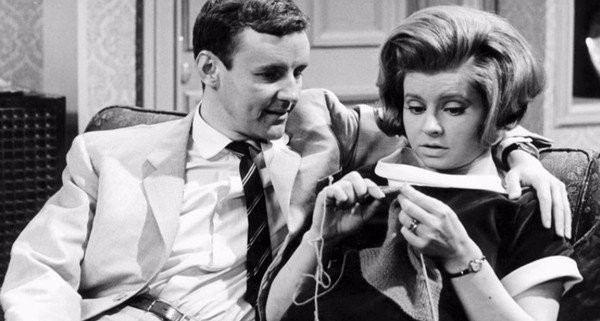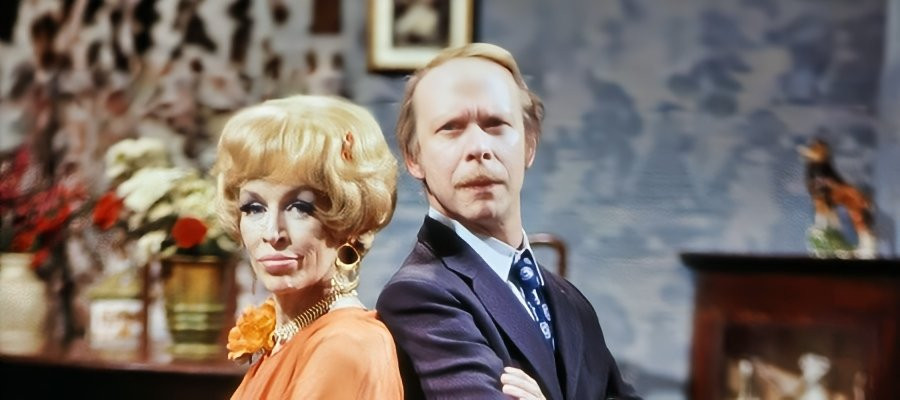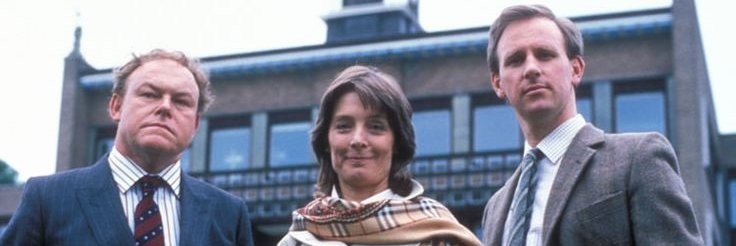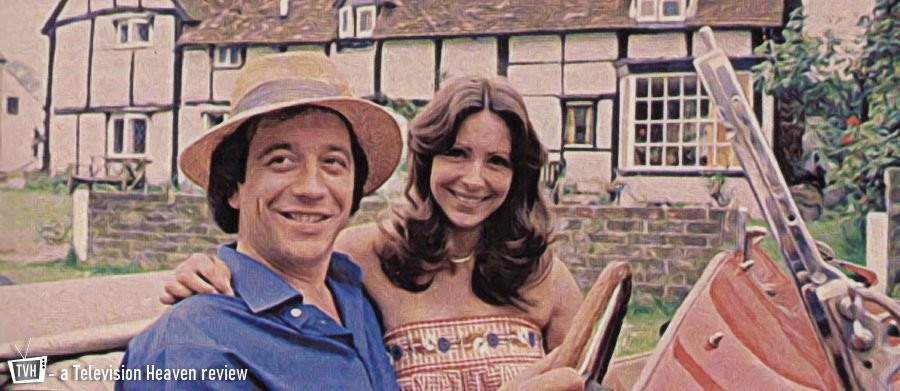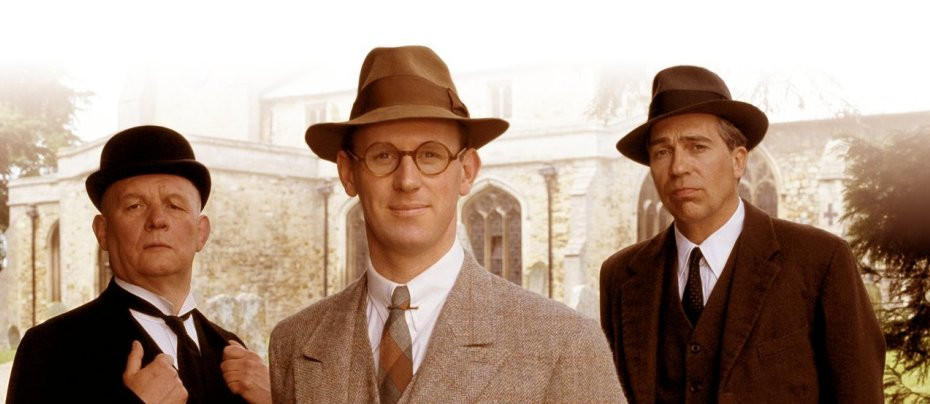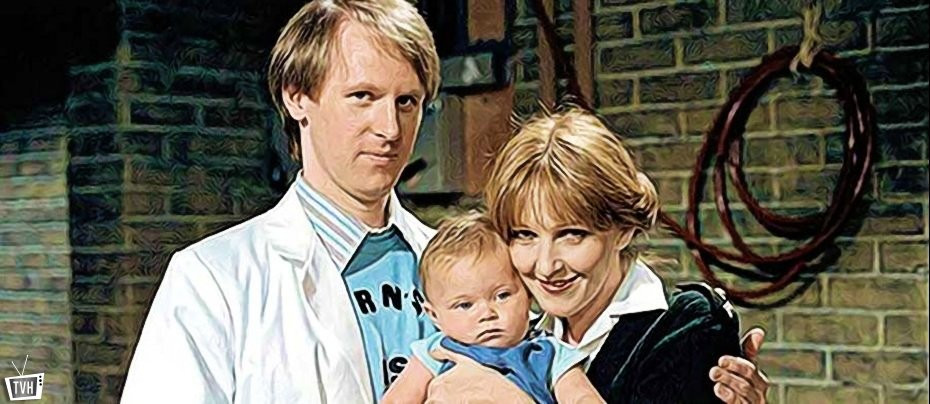
Holding the Fort
1980 - United KingdomPeter Davison, Patricia Hodge and Matthew Kelly have all had huge primetime success in their career, but dig back to 1980 and you will find a gentle role reversal sitcom that starred all three, ran for three seasons and provided an early success for scriptwriters Laurence Marks and Maurice Gran, before they experienced runaway success with such shows as Birds of a Feather, The New Statesman and Goodnight Sweetheart.
The seeds were sown for Holding the Fort in the late 1970s when LWT’s head of comedy, Humphrey Barclay, was commissioning a number of pilot comedy shows under the umbrella of Comedy Tonight. Originally planned as ‘Holding the Baby,’ the title was changed when the leading female character’s job was changed from the rather predictable advertising executive to the more unusual one of Army Captain.
The show had a troubled start and could easily have fallen by the wayside due to industrial action going on at LWT at the time. Their recording in front of an audience was cancelled, but fortunately for the show’s creators, director Derrick Goodwin had recorded the dress rehearsal, which was green lit in 1979 for a full series.
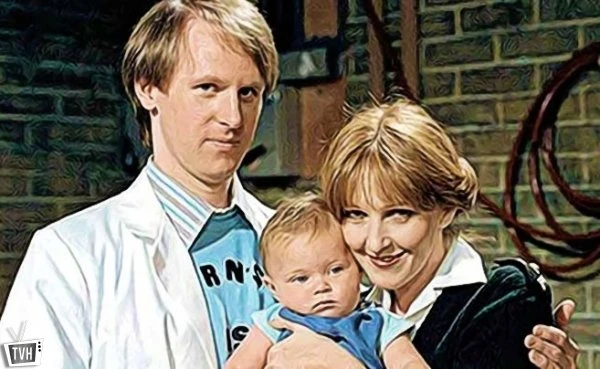
Russell Milburn (Davison) has a steady job at the local brewery. He returns home from work one day to inform his wife that their money problems are soon to be over, perfect timing considering that they have only recently become parents and are struggling to make ends meet. The new car outside is evidence of that, but it soon becomes clear that Russell is trying to let his wife down gently to the news that he needs to relocate 300 miles north to Workington if he is to keep his job.
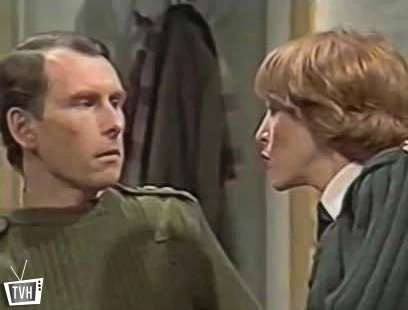
For wife Penny (Hodge), the idea is unpalatable. After making her case for not moving, the pair establish that the only alternative to relocating is for Penny to return to work, leaving Russell at home to raise their new daughter, Emma. It’s not an idea Russell likes (this is 1980 after all), but faced with few alternatives, Penny successfully re-applies to the Women’s Land Army to retake her role as Captain Milburn.

Part of the deal that allowed Penny to return to work was that rather than employ a nanny, something they couldn’t afford, Russell would accept redundancy from his employers and plough the money into converting their cellar into a brewery and starting his own business brewing his own ale, something he already did as a side-line for a few local clubs. The Milburn’s hadn’t considered this particular option until at 3am in the morning they were reminded of Russell’s desire to tell his boss to ‘stick his Brandenburg lager right up his orchestra stalls’ by friend Fitz (Kelly).
Fitz wasn’t always the most trusted of advisors, but one thing he could be trusted with is his ability to drink. Disapproving of the gassy beer produced by Russell’s employers, his encouragement is heeded and the Milburn’s go about becoming brewers in their own right, while Penny returns to the military to bring in a steady income.

Across three series, the show deviates between Russell’s attempts to succeed at business while being a stay at home father and Penny’s battles at work, continuing to fight sexism despite her rank. Fitz provides a confidant for both at times, as well as becoming a paid employee.
There are some somewhat older jokes knocking around that don’t sit so well. Workington takes the brunt of many Northern jokes, while there’s a flippancy around some of the jokes about the embarrassment of a man becoming a stay at home parent. That said, this is a show that is 40 years old and there are far worse examples of bad aging in comedy…which makes one wonder why Holding the Fort has been kept off the nostalgia channels so much.
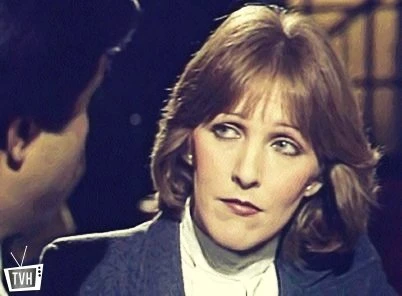
The programme was an undoubted success. Given that it was airing at the same time as Davison was taking over the mantle of Dr Who from Tom Baker, the fact that it was briefly LWT’s highest rated comedy shows how well received it was by the public. Hodge was expert at being caring mother, devoted wife but battling army captain, while Davison’s fresh-faced charm instantly made him a likeable and believable male lead. Despite this, Kelly would be the most successful of the three stars in terms of the show’s success. A change in the corridors of power at LWT brought an end to the programme after three series, but an opportunity opened up for a spin-off on the fledgling Channel Four...Relative Strangers saw Kelly’s character spun-off into a new show where his life changes dramatically when he discovers that his wayward past has caught up with him in the form of a hitherto unknown 18-year-old son.
It’s safe to say that Holding the Fort is unlikely to be making any Channel 5 top 50 compilation programmes, but the absence of repeat showings in the cable era may be as much a reason for that as its content. Both Holding the Fort and Relative Strangers were huge ratings hits, while stars Davison, Hodge and Kelly swiftly went on to massive television success. Coupled with the fact that Marks and Gran were in the infancy of a hugely successful writing career, Holding the Fort is an undemanding but highly likeable piece of nostalgia that warrants a nod of respect for the television ripples that it generated.
Review by Brian Slade:
Born and raised in Dorset, Brian Slade turned his back on a twenty-five-year career in IT in order to satisfy his writing passions. After success with magazine articles and smaller biographical pieces, he published his first full-length work, `Simon Cadell: The Authorised Biography'.
Brian is a devoted fan of the comedy stars of yesteryear, citing Eric Morecambe, Ken Dodd, Harpo Marx and Dudley Moore amongst his personal favourites. He was drawn to the story of Simon Cadell through not only `Hi-de-hi!' but also `Life Without George', a programme he identified with having grown up in the Thatcher era.
Seen this show? How do you rate it?
Seen this show? How do you rate it?
Published on October 26th, 2021. Written by Brian Slade for Television Heaven.


